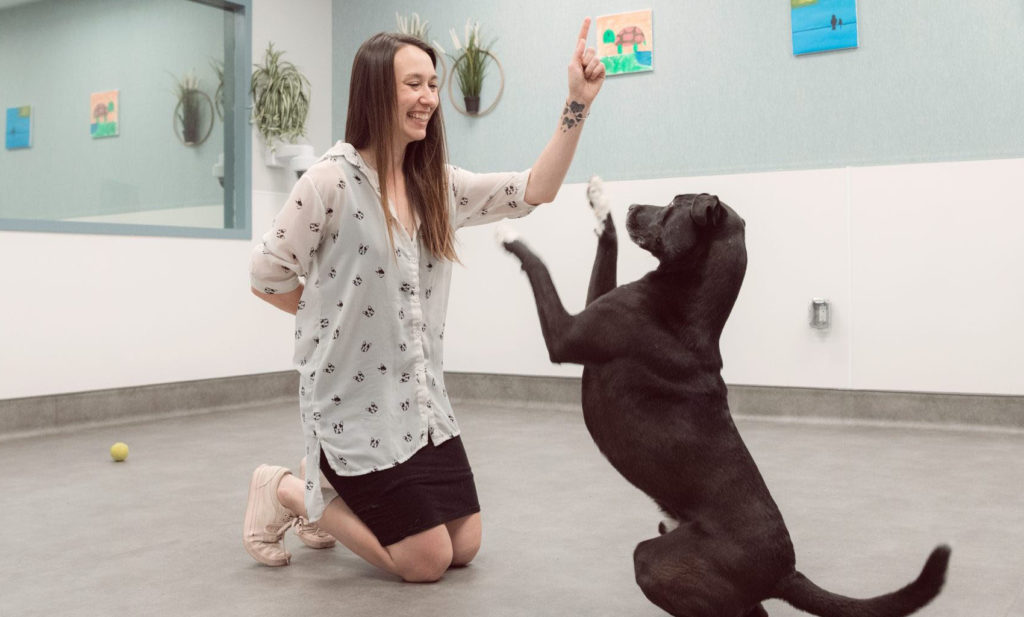
A new lab in UBC’s Animal Welfare Program welcomes furry, four-legged participants who can provide researchers with greater insights into their cognitive abilities.
Led by Dr. Alexandra (Sasha) Protopopova, Assistant Professor and Certified Applied Animal Behaviourist, the Human-Animal Interaction Lab will use behavioural studies to understand differences in dog personality and learning. Additionally, the lab will study the welfare and behaviour of therapy and assistance dogs that help people.
“The opening of the brand new Human-Animal Interaction Lab space will finally allow us to work collaboratively with the local dog-loving community. We are excited to bring in our dog guests and their owners to learn more about our best friends,” says Dr. Protopopova. “It will also allow for teaching opportunities for graduate and undergraduate students who are interested in companion animal behaviour.”
Dr. Protopopova holds the NSERC/BC SPCA Industrial Research Chair in Animal Welfare, so her research findings are expected to impact many areas: animal shelter practices, including supporting positive behaviour of dogs living in shelters; therapy dog training practices to improve the wellbeing of dogs and the people they assist; and, general companion animal welfare knowledge.
In 2020, Humane Canada reported 20,000 dogs were taken into shelters with approximately 50% of them being adopted. Unfortunately, dog adoptions have slowed down in 2022.
“With COVID-19 restrictions ending and many going back to the office, some dog owners are discovering behavioural challenges, such as separation anxiety, in their new companions. Furthermore, the difficult economic situation and lack of access to pet-friendly affordable housing means that many are forced to rehome their beloved pets. This is now an urgent time to help dogs and owners in need.”
The lab will undertake a variety of studies, including ways to assist dog owners with their dogs’ behavioural concerns. It will also be a place for learning about animal behaviour and animal sheltering, in general.
Please visit ReachOut, the Faculty of Land and Food Systems’ newsletter, to read the full story.
Through Strategy 9: Knowledge Exchange, UBC is committed to improving the ecosystem that supports the translation of research into action.